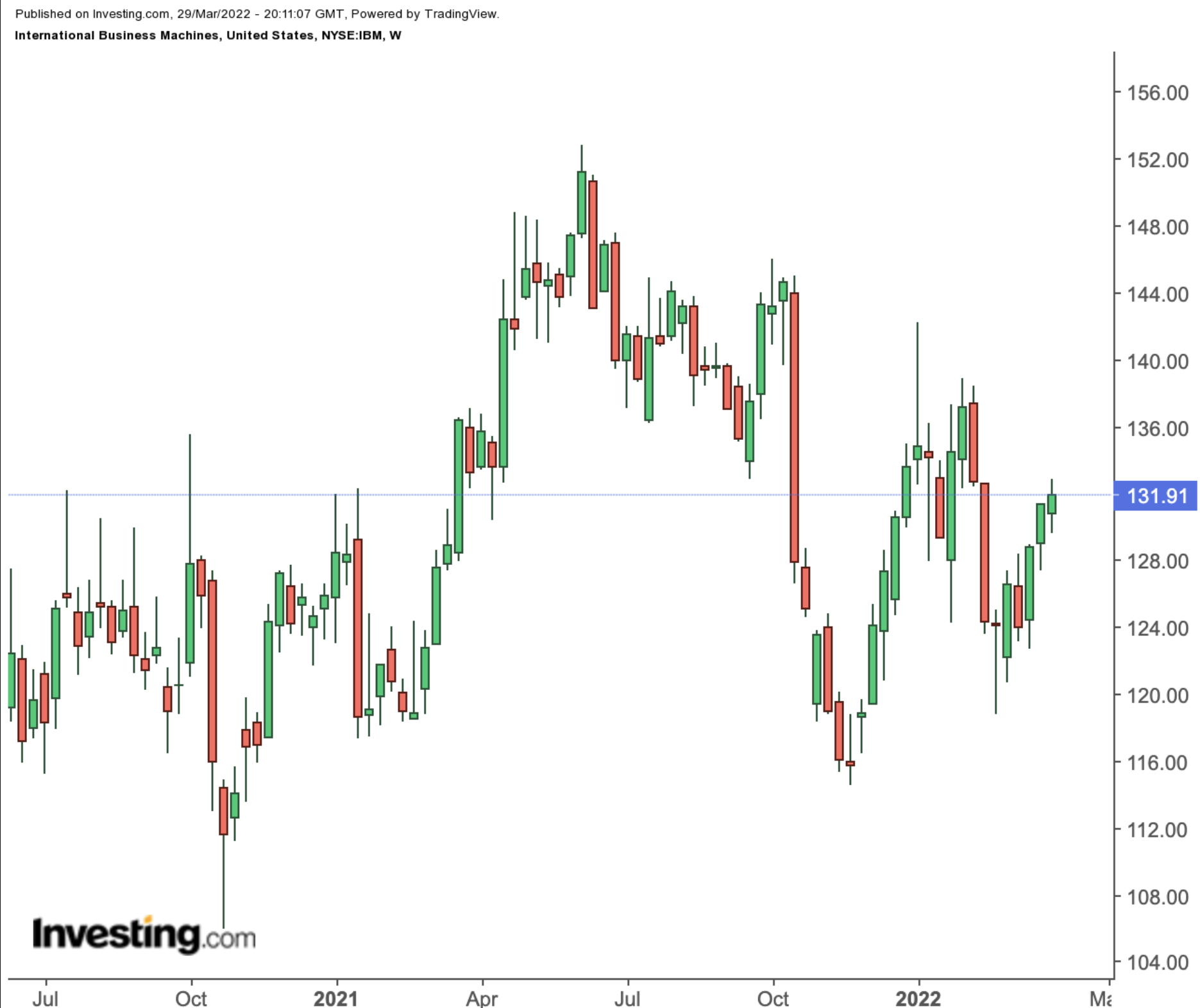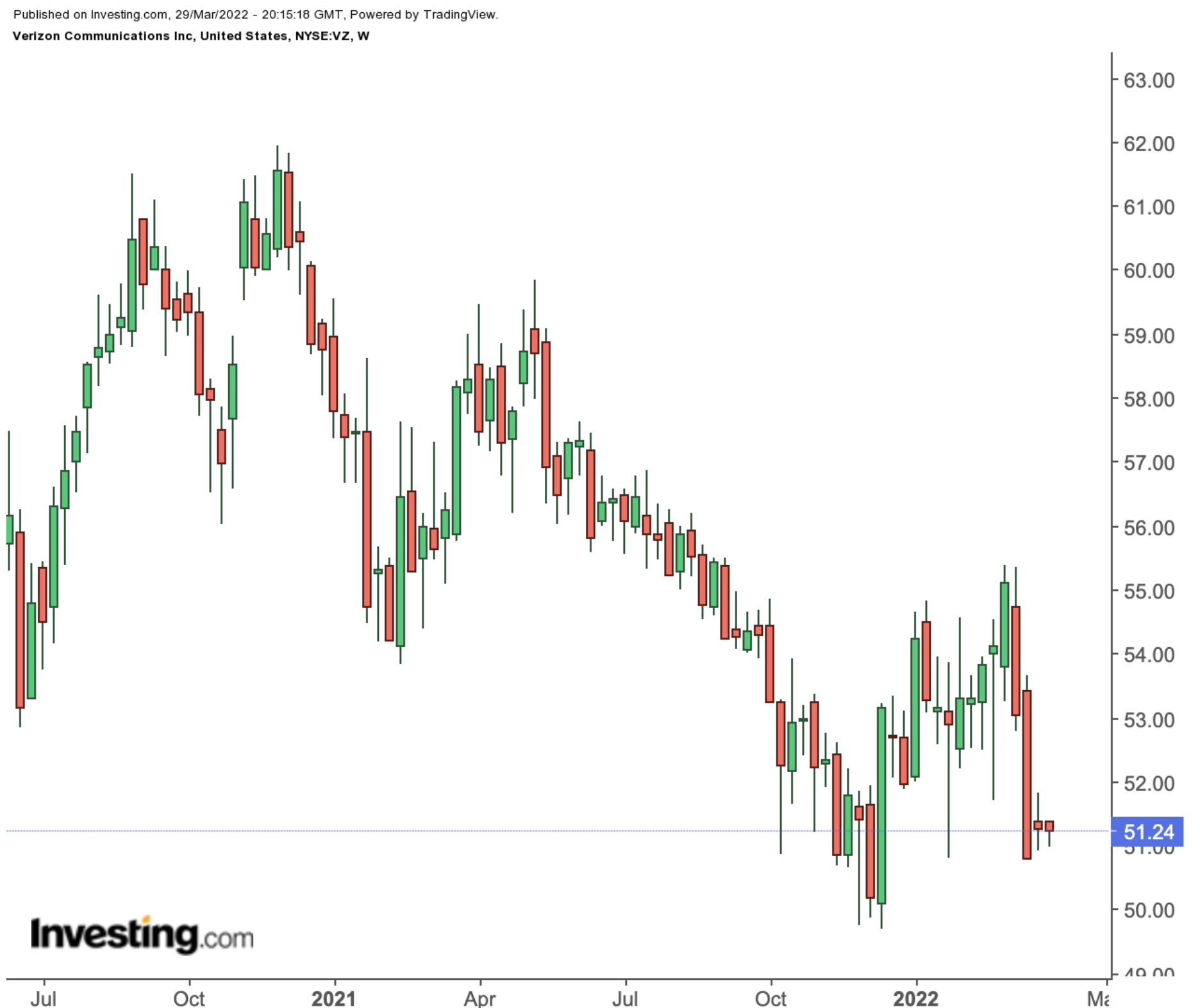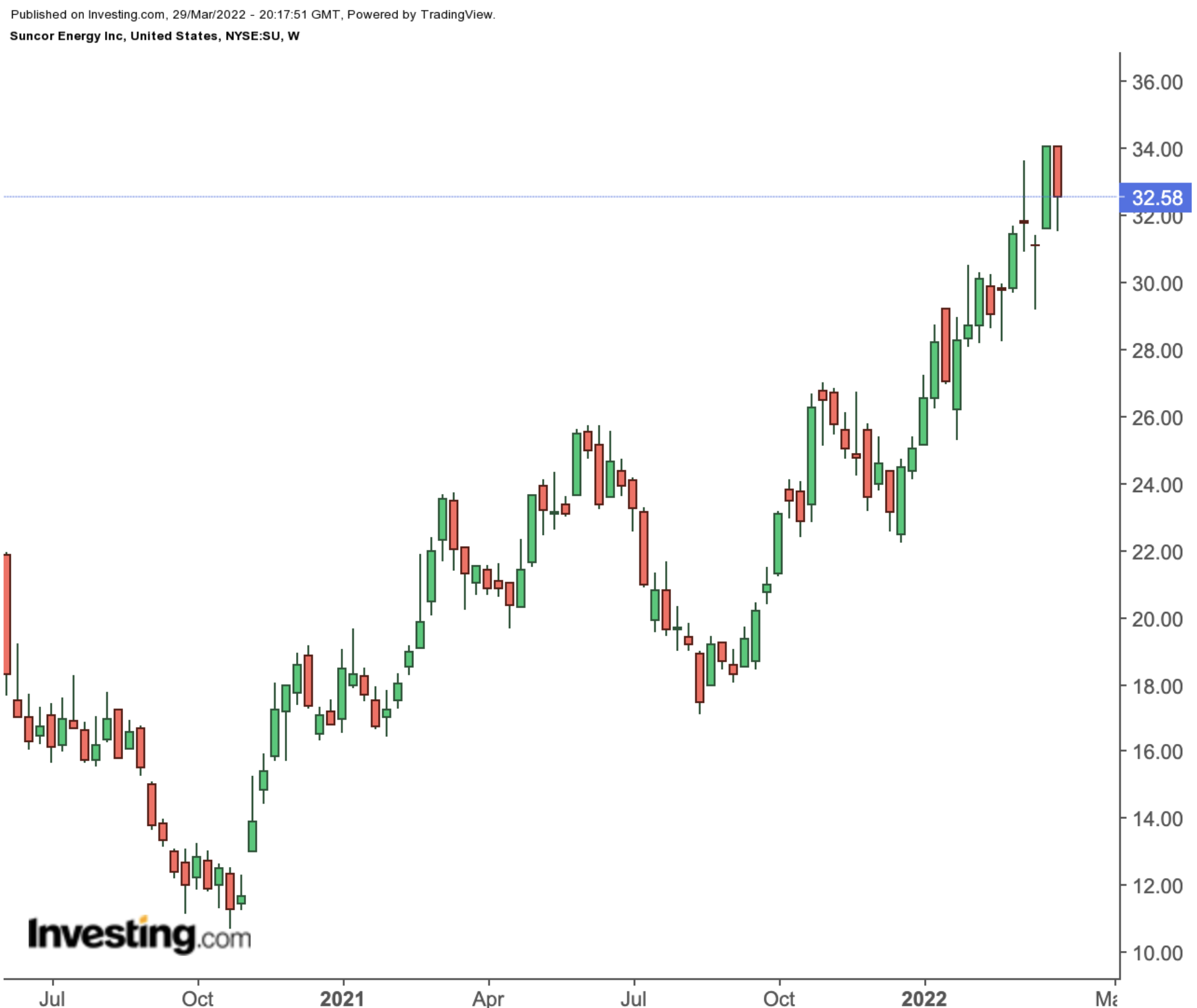If you're planning to build a portfolio that will generate a steady income stream during retirement, finding quality, high-yielding dividend stocks may be your biggest challenge.
Stocks that offer higher yields are often risky bets and therefore don't make a compelling long-term investment due to the difficulty of predicting their future growth. That is even more relevant as inflation hits a 40-year high and the Federal Reserve begins rolling up its rate hike cycle.
However, there are still attractive opportunities that appear from time-to-time for investors whose aim is to earn good cash flows from their retirement portfolios.
Accordingly, we have shortlisted three stocks you can consider adding to your portfolio with this theme in mind.
1. IBM
- Yield: 4.97%
- Quarterly payout: $1.64
- Market Cap: $118 billion
International Business Machines (NYSE:IBM) doesn't fall into the category of technology stocks that offer high growth potential. Rather, in our view, IBM is a safe dividend stock, even—and perhaps especially—after its new management has signaled a shift to cloud computing which is a high-growth business.

Shares closed Tuesday at $131.94. The stock currently pays a quarterly dividend of $1.64 per share dividend, which translates into a 4.97% annual dividend yield at the current stock price. That makes IBM one of the highest yielding blue-chip companies.
The Armonk, New York-based information technology services company also has a solid track record of rewarding investors, by hiking its dividend for the last 26 years.
Still, when it comes to growth, during the past decade, IBM has undoubtedly disappointed investors. But after its Red Hat acquisition and with new management in place, we see IBM slowly getting back on a growth trajectory. IBM's healthy balance sheet, manageable debt, and high dividend yield make it a bet worth considering, particularly for fixed income investors, especially when its turnaround is gaining pace.
In its most recent quarterly report, IBM showed the most significant revenue jump in at least 10 years, fueled by strong demand in its software unit, including IBM's hybrid cloud offering, signaling that its turnaround efforts are paying off.
Chief Financial Officer Jim Kavanaugh told Bloomberg:
"This is the start of the new IBM and perspective on what we look like going forward. We saw a very healthy acceleration in the cloud and consulting, which are key growth areas."
2. Verizon Communications
- Yield: 5.00%
- Quarterly payout: $0.64
- Market Cap: $215 billion
America's second largest telecom services provider, Verizon Communications (NYSE:VZ), is another solid dividend stock for retirees. The New York-based company currently pays $0.64 quarterly per share. That represents an annual dividend yield of 5.00%. The payout has been growing since 2007. VZ closed Tuesday at $51.25.

CEO Hans Vestberg is cutting investments in risky areas, like media, to focus entirely on network expansion. Recently, Verizon sold Yahoo to a private equity firm, Apollo Global Management, for $5 billion, with $4.25 billion in cash.
During its last earnings report, Verizon told investors that it expects revenue growth of about 4% annually in 2024 and beyond, driven by gains from its new 5G mobile phone services.
Moreover, initiatives like selling higher priced 5G unlimited data plans to mobile subscribers, offering wireless home broadband, and securing partnerships with big tech companies will help expand sales when subscriber growth slows after the pandemic-induced surge subsides.
Verizon also told analysts this month that it plans to collaborate with Facebook parent, Meta Platforms (NASDAQ:FB), to explore "a range of metaverse opportunities from the future of hybrid work/collaboration to metaverse-related consumer experiences."
3. Suncor Energy
- Yield: 4.12%
- Quarterly payout: $0.42
- Market Cap: $46 billion
Suncor Energy (NYSE:SU) is Canada's largest integrated energy company. With a portfolio of high-quality assets, including oil sands extraction, refining, and marketing its energy products to industrial, commercial, and retail customers, Suncor also operates more than 1,500 Petro-Canada stations in Canada, with a 20% retail market share. The stock closed on Tuesday at $32.59.

Since the 2014 oil downturn, Suncor has undertaken an aggressive cost-cutting program that helped the company extract oil at a much lower break-even point.
Now that oil prices have staged a strong rebound due to the geopolitical crisis and higher demand after the pandemic, Suncor is well-positioned to generate higher cash flows. Although it came up short of expectations in its last earnings report, the company posted a solid $1.55 billion profit in Q4 2021.
Suncor has been paying dividends since 1992 and offers a current dividend yield of more than 4%. To compensate investors for its 2020 dividend cut, Suncor used excess cash to buy back stock and reduce debt in 2021.
As oil prices recovered last year, Suncor raised the distribution by 100% to bring the payout back to the 2019 level.
According to Goldman Sachs forecast, the company will deliver 38% per annum dividend growth between 2021-2023.
